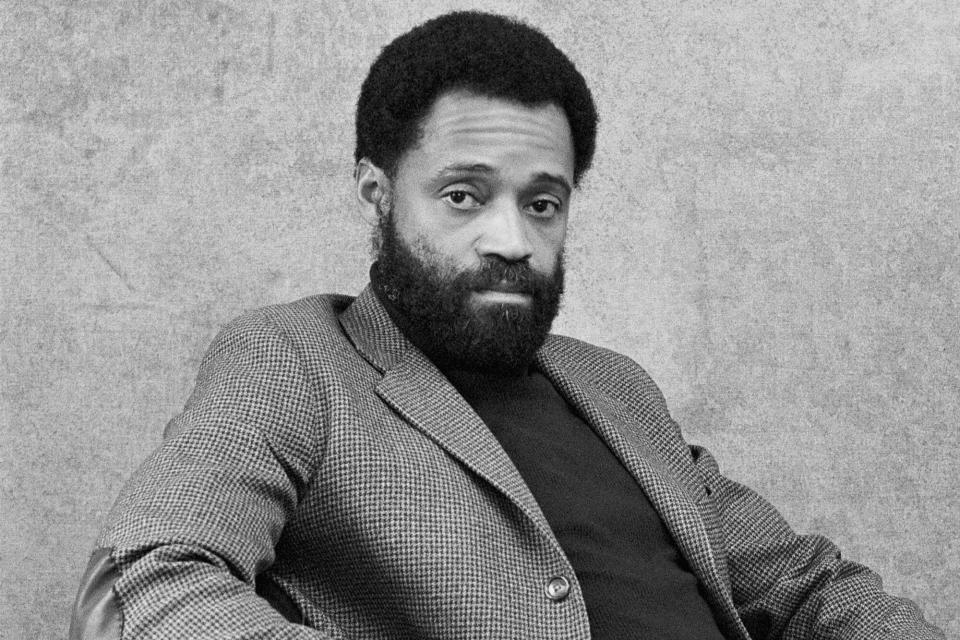Melvin Van Peebles, iconic director, actor, and writer, dies at 89
Melvin Van Peebles, a pioneering force in Black and independent cinema and a celebrated actor, playwright, filmmaker, novelist, and composer, died Sept. 21 at his home in Manhattan, surrounded by his family. He was 89.
The Criterion Collection, which is slated to release a box set of Van Peebles' essential films next week, announced the news on behalf of his family.
Van Peebles made an indelible mark on culture and the arts and was perhaps best known for directing, writing, editing, starring in, composing the score of, and even running the marketing campaign for the 1971 film Sweet Sweetback's Baadasssss Song. The film became highest-grossing indie release in history at the time, helped spark the blaxploitation craze of the 1970s, and delivered a potent political statement that remains resonant to this day.
"Dad knew that Black images matter," his son Mario Van Peebles, the actor and director, said in a statement. "If a picture is worth a thousand words, what was a movie worth? We want to be the success we see, thus we need to see ourselves being free. True liberation did not mean imitating the colonizer's mentality. It meant appreciating the power, beauty, and interconnectivity of all people."

Alex Gotfryd/CORBIS/Corbis via Getty Images Melvin Van Peebles
Melvin Van Peebles — Van was originally his middle name — was born Aug. 21, 1932, in Chicago, and went on to earn a B.A. in literature from Ohio Wesleyan University before joining the Air Force and serving for nearly four years.
Van Peebles began his artistic career as a writer, publishing his first book in 1957, The Big Heart, which was inspired by a small article and a series of photographs taken by Ruth Bernhard. His writing led to filmmaking, beginning with the 1957 short Pick Up Men for Herrick, followed by two others.
Unable to find work in Hollywood off his shorts, Van Peebles traveled to Europe and pursued a variety of opportunities, eventually settling in France. There made the short film Les Cinq Cent Balles (500 Francs), did investigative journalism for France Observateur, and became a columnist for the anti-authoritarian humor magazine Hara-kiri.
Here’s the full text of our announcement on the passing of Melvin Van Peebles: pic.twitter.com/n0svUACrKP
— Criterion Collection (@Criterion) September 22, 2021
In 1965, Van Peebles became the editor-in-chief of a short-lived French edition of Mad magazine. He also began writing plays in French and even released a debut album, Brer Soul.
He published four novels, a collection of short stories, and the play La Fête à Harlem, which was also released as a novel. Later he would transform it into the musical 1972 film Don't Play Us Cheap, which he also directed.
In 1968, Van Peebles made his first feature film, The Story of a Three-Day Pass (La Permission), based on a novel of the same name. After winning an award at the San Francisco International Film Festival, the feature brought Van Peebles to the attention of Hollywood producers, leading to his 1970 studio debut, Watermelon Man, written by Herman Raucher.
Van Peebles' experiences on the film left him determined to maintain complete creative control over his projects, starting with Sweet Sweetback's Baadasssss Song.
He continued to write, act, direct, and more throughout his career. In 2005, Van Peebles was the subject of two documentaries: How to Eat Your Watermelon in White Company (and Enjoy It) and Unstoppable: Conversation with Melvin Van Peebles, Gordon Parks, and Ossie Davis.
Revered as a creator, he died on the cusp of even further celebration of his work, including a 50th anniversary screening of Sweet Sweetback's Baadasssss Song at the New York Film Festival this month, the release of the Criterion set, and a planned Broadway revival of his play Ain't Supposed to Die a Natural Death.
Related content:

 Yahoo Movies
Yahoo Movies 